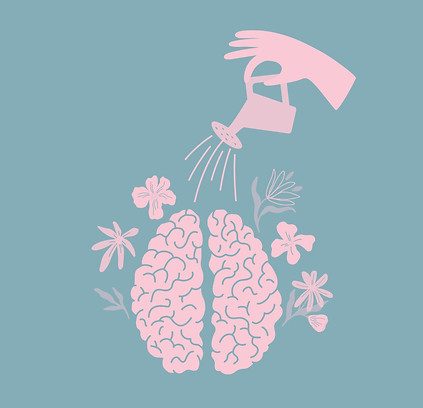Speech pathology assessment, therapy, and coaching services for people who think, live, and communicate differently.

Communication Support for Neurodivergent People
Neurodivergent brains interface with the world differently, and that impacts every aspect of human communication. Some neurodivergent people have challenges with speech, language, and learning, while others do not. As a speech pathologist, I put my detective hat on and gather as much information as I can about my individual client's unique skillset and functioning. Then I offer gentle guidance to integrate both their fully-developed and emerging speech, language and social communication skills in a way that fosters safety, joy, and connectedness.
Gestalt Language Processing
Many autistic people develop language differently than non-autistic, or allistic, people do. They may communicate using 'gestalts,' which are whole chunks of language, songs, or movements that they may have learned from media or from the people around them. For these communicators, a different way of supporting language development is needed, and it looks very different from traditional speech therapy. When working with gestalt language processors/learners, I often use music, singing, rhythmic sound-making, and the child's preferred media to understand how the child communicates and respond in kind. I work closely with their caregivers to coach them on how to gather information about where the child's gestalts originate and how to support the child as they move through the stages of language development.


PDA support and coaching
Some neurodivergent people identify as or are identified as being/having PDA. PDA stands for Pathological Demand Avoidance, or Pervasive Drive for Autonomy. The knowledge base around this nervous system difference or disability is constantly growing and changing. It is often difficult to understand and navigate, both for the folks around PDA-ers as well as PDA-ers themselves.
I am self-identified as having a PDA profile, and understanding this about myself informs how I practice as a clinician. This means that my primary role in supporting PDA-ers is coaching everyone else in the PDA-er's life on how to reduce demands and communicate in low-demand, safe, authentic, and equity-minded ways.
I can help by troubleshooting, coaching, and collaborating with parents, educators, and other service providers. I ask others to take the onus off of the PDA-er to change. For children with a PDA profile, authentic, low-demand, safe communication is my primary focus, rather than prioritising speech, language, or literacy intervention. Skill development in these domains is contingent upon maintaining safe, equity-based, authentic interaction that validates the child's needs and joys.
Assessment of Functioning and Autism Assessment
Assessment of Functioning
Under the current Autism CRC national guidelines on the pathways to autism diagnosis, I can offer an Assessment of Functioning as part of a Comprehensive Needs Assessment that can lead to a recommendation for a formal Diagnostic Evaluation. With the Assessment of Functioning, I can:
- assess your child's communication and social functioning
- provide a summary report on the assessment findings
- identify potential indicators of autism that may support a Diagnostic Evaluation
Autism Assessment - Coming Soon!
I am currently undertaking the Graduate Certificate in Autism Diagnosis at University of Western Australia, which I aim to complete by the end of 2025. This will enable me to offer autism assessments as part of a Consensus Team Diagnostic Evaluation.
I will not be able to offer a single-clinician diagnosis or provide assessments for adults, but I will be able to provide children up to 16 with assessment using formal assessment tools such as the ADOS-2 and standardised language assessment tools as part of the diagnostic process.

